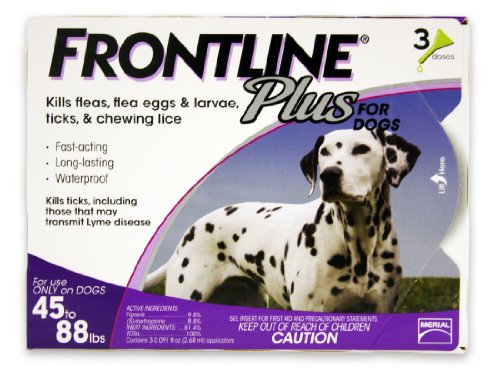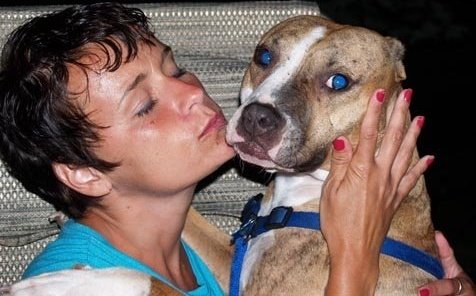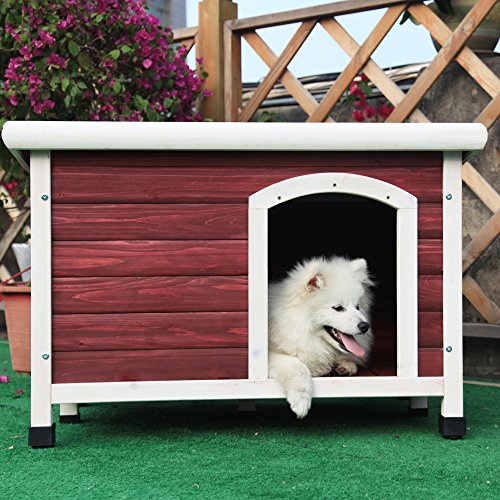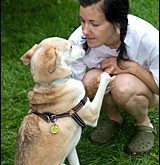Many dog owners and experts would tell you that choosing the right dog breed is the most important decision to make when one decides to own a dog. While there is no doubt about that, most dog owners do not consider if a young puppy or adult dog is more suitable for them.
On the whole, most dog owners believe that bringing up a puppy is an advantage because this means that you guide its growth and well being. You have the ability to raise it according to what you want. This means you can ensure that it is properly nurtured with the right dog food, the necessary vaccinations given and heartworm prevention done properly at this early stage. You can choose to train your puppy the right way from the start, giving him no chance to develop undesirable behaviors.
A puppy can easily adjust to new surroundings as compared to an adult dog even though most puppies may cause some damage to your personal stuff while they are in the stage of teething. They need to be housebroken and house training needs a lot of time, effort, and patience from the owner.
There is no assurance of what a puppy will look like when it grows up; especially if it is a mixed breed. Also, his temperament might change too when he grows up. It is advisable to bring your puppy home when it has reach ten weeks old. Puppies need a lot of time to be cared for by their mothers. This is a crucial stage for them. Doing so enables the puppy to grow better psychologically according to most expert breeders.
Puppies are at a stage where they are most adorable and fun to have in the family. They are hugely lovable and cute now which makes it fun and interesting for the whole family. Puppies are generally easier to be accepted into a new family as they watch it grows.
On the other hand, puppies require a lot of attention and training a puppy can be difficult, time consuming and an expensive task. Destruction is inevitable in the house ranging from carpet stains during house training to chew up shoes and furniture when he is teething. All these may be unbearable and difficult to achieve if you are one with a busy schedule.
Getting an Adult Dog - A well trained adult dog is an easy fit into any family. You would generally have less of a fuss taking care of an adult dog. They already have an established behavior that you can understand. By being with the dog more often, you would have a clearer idea of its temperament is.
One big consideration is that the personality and characteristic of the adult dog is relatively unknown and need to be carefully evaluated. A new owner should take note of its habits and mood swings. Hopefully you can acquire this valuable data from the previous owners of the dog. There are also chances that some older dogs might suffer from some behavioral problems. It is important to take note of them.
You still need a considerable amount of time and effort to get to know your adult dog and for him to be comfortable with you. You need to introduce an adult dog to your children and other household members before bringing him into the home. This would help the dog familiarize itself with them. It could prevent the dog from biting or barking family members, thinking that they may be strangers.
An Older dog do not need as much attention as a young puppy does, it also requires lesser trips to the local veterinary. As far as an adult dog is concern, his physical characteristics will not surprise you and largely remains the same. Its behavior is more predictable as well. What you see is basically what you get and there might be fewer surprises for you in the long run.
Most dogs are housebroken already so they would cause lesser damage to your belongings and don't tend to wake up at night like most puppies do. They have usually outgrown the impulse of chewing things that strike its fancy. In addition, an older dog can easily adapt to other pets, like other dogs or cats.
A popular myth believes that older dogs will not bond to their new owners is definitely not true. Bonding will occurs between you and your dog regardless of your dog's age if you are willing to put in time and effort to develop a good relationship.

 How to Relieve Your Pets Itching and Scratching
Unhealthy SkinA number of sk
How to Relieve Your Pets Itching and Scratching
Unhealthy SkinA number of sk
 10 Dog Breeds For Laid Back Lifestyles
10 Dog Breeds For Laid Back Lifestyles
Make Room On The
10 Dog Breeds For Laid Back Lifestyles
10 Dog Breeds For Laid Back Lifestyles
Make Room On The
 Interview With A Pit Bull Rescuer
Interview With A Pit Bull Rescuer
Catherine Hedg
Interview With A Pit Bull Rescuer
Interview With A Pit Bull Rescuer
Catherine Hedg
 Cute Dog Houses
Our pets are part of the fam
Cute Dog Houses
Our pets are part of the fam
 Dog Tricks – Dog Training Level 1
Dog Tricks – Dog Training Le
Dog Tricks – Dog Training Level 1
Dog Tricks – Dog Training Le